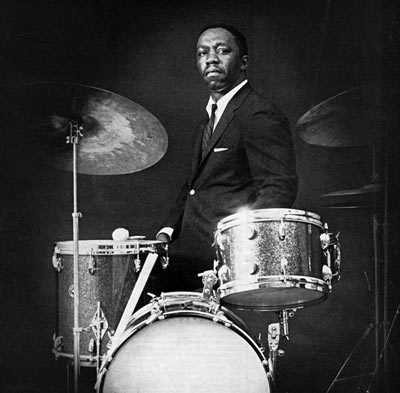
Art Blakey, an iconic American drummer and bandleader, revolutionized jazz drumming by blending swing, blues, funk, and hard bop into a dynamic new style. Alongside Max Roach and Kenny Clarke, he helped pioneer bebop drumming. For over 30 years, his band, The Jazz Messengers, was a launching pad for jazz legends such as Wayne Shorter, Benny Golson, Freddie Hubbard, and Wynton Marsalis. Blakey’s influence reshaped modern jazz and inspired generations of musicians worldwide.
On this day, President Abraham Lincoln signed the Emancipation Proclamation, declaring all enslaved people in Confederate states to be free. However, the proclamation did not apply to enslaved people in certain exempted areas, including thirteen parishes in Louisiana (such as New Orleans), forty-eight counties in West Virginia, and seven counties in Eastern Virginia (including Norfolk). It also did not apply to slaves in the Border States that remained in the Union.
Omega Psi Phi, the first international fraternal organization founded on the campus of a historically Black college, was incorporated on this day. Established at Howard University in 1911, the fraternity became a legal entity in 1914, marking a key moment in African American collegiate life and leadership development.
On this day, C. W. Allen invented the self-leveling table, an innovative device designed to maintain a level surface regardless of movement. He was granted U.S. Patent No. 613,436 on November 1, 1898, for this invention. His contribution reflects the ingenuity and impact of Black inventors in the field of mechanical design during the late 19th century.
William Monroe Trotter, a Harvard-educated activist and outspoken advocate for civil rights, launched The Guardian as a platform to challenge racial injustice and oppose accommodationist approaches to segregation. The paper became a powerful voice for Black Americans during the early 20th century.
A law took effect in Arkansas prohibiting the employment of free Black individuals on boats and ships navigating the state’s rivers. This legislation reflected the increasing hostility toward free Black people in the South, aiming to limit their economic opportunities and mobility. It also foreshadowed the growing tensions that would erupt into the Civil War the following year.
The first celebration of Kwanzaa, created by Dr. Maulana Karenga in 1966, concluded on January 1 with “Imani,” the seventh principle of the Nguzo Saba. Imani, meaning “faith” in Swahili, encourages belief in the community, its leaders, and the righteousness of the Black struggle. Kwanzaa honors African heritage and values, and this final day reflects the importance of spiritual and communal confidence.
Lola Falana, an American singer, dancer, and actress, was born in Camden, New Jersey. Known as the “First Lady of Las Vegas,” Falana broke barriers as one of the first African-American women to headline major shows in Las Vegas during the 1970s. Her dynamic performances and charisma made her a trailblazer in entertainment, bridging music, film, and stage.
Kofi Annan began his term as the seventh Secretary-General of the United Nations, making history as the first Black person and the first sub-Saharan African to hold the position. His leadership would later earn him the Nobel Peace Prize in 2001, shared with the UN for their work toward a better organized and more peaceful world.
On January 1, 1960, Cameroon gained independence from France, becoming the Republic of Cameroon. This marked a significant moment in the broader wave of African decolonization during the mid-20th century. Cameroon’s independence was a key step toward self-determination for its people and contributed to the reshaping of post-colonial Africa.
On January 1, 1956, Sudan officially declared its independence from joint British-Egyptian rule. The event marked the emergence of Sudan as a sovereign nation, with Ismail al-Azhari becoming the first Prime Minister. Sudan was one of the earliest African nations to gain independence during the wave of decolonization across the continent.
On January 1, 1808, the African Benevolent Society for Education was founded in New York City. Created by free African Americans, the society aimed to promote literacy, moral development, and self-reliance within the Black community at a time when access to formal education was severely limited due to systemic racism. The organization provided instruction to both children and adults and became a model for other Black mutual aid and educational societies throughout the 19th century. Its founding also coincided with the abolition of the transatlantic slave trade in the United States, symbolizing a new chapter in African American self-determination and community building.
On this day, a federal law went into effect prohibiting the importation of enslaved Africans into the United States. While slavery itself remained legal, this marked a significant moment in the fight against the transatlantic slave trade, following Article I, Section 9 of the U.S. Constitution, which allowed Congress to act 20 years after ratification.
James Meredith became the first Black student to enroll at the University of Mississippi, marking a significant milestone in the American Civil Rights Movement. His admission was met with violent resistance, requiring the intervention of over 3,000 federal troops to quell riots and ensure his safety. Meredith’s courage paved the way for desegregation in higher education across the American South.
On this day in 1961, James B. Parsons made history as the first African American appointed to a lifetime position on the federal bench in the United States. Nominated by President John F. Kennedy, Parsons was confirmed to serve on the U.S. District Court for the Northern District of Illinois.
Born on August 13, 1911, Parsons’ appointment was a groundbreaking achievement during a time of entrenched racial segregation and civil rights struggles. His presence on the federal judiciary was a powerful symbol of progress and opened the door for greater representation of African Americans within the legal system. Parsons’ legacy as a pioneer in the judiciary continues to inspire new generations.
© 2025 KnowThyHistory.com. Know Thy History